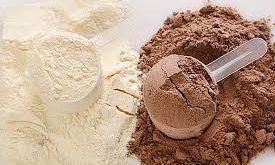BY: Dr Riddhima Shetty, Obs & Gynaecologist at SRV Hospital, Chembur.
A large number of women will experience a worrisome condition in pregnancy known as preeclampsia. This condition can be dangerous for both, the pregnant woman and her baby. In the below article, we tell you everything you need to know about this condition.
Did you know? Women may suffer from various complications during pregnancy, and one of them is preeclampsia (high blood pressure). It is commonly seen in pregnant women and affects one’s kidneys, liver, and brain if left untreated. Neglecting the condition can also cause it to turn into eclampsia which can take a toll on the other organs of the body, damage them, lead to seizures, and loss of life.
The symptoms of this condition are a large amount of protein in the urine, vision problems, headache, chest pain, nausea or vomiting, abdominal pain, breathing problems, and impaired liver function.
The factors causing this condition are being pregnant with more than 1 baby, having a history of this condition during the previous pregnancy, kidney disease, autoimmune condition, type 1 or type 2 diabetes before pregnancy, obesity, and chronic hypertension.
Know about the severe problems that may arise due to this condition: When it comes to mothers, Preeclampsia is associated with fluid retention and protein excretion in the urine which can invite kidney failure and end-stage renal disease. Thus, it will be the need of the hour to bring your numbers down during pregnancy. Speaking about the baby, high blood pressure causes placental abruption (premature detachment of the placenta from the uterus). Then, there can be heavy bleeding that is dangerous for the mother and baby. Foetal growth restriction and preterm birth can also be seen due to high blood pressure during pregnancy. So, one will have to be proactive in managing this condition.
Tips to manage this condition: Monitor the blood pressure as suggested by the doctor. It should be done every day without fail. Any abnormal changes in the blood pressure should be brought to the notice of the treating doctor. Opt for blood tests that will help you to examine your kidney and liver health. Take medication only prescribed by the doctor. Remember to avoid self-medication as it can be risky and worsen your condition. Eat a diet consisting of all the vital nutrients. Have fresh fruits, vegetables, whole grains, legumes, lentils, and pulses. Avoid junk, oily, packaged, and processed foods. Cut down on carbohydrates, potatoes, fruit juices, colas, sweets, candies, and desserts. Exercise daily but avoid heavy workouts. Maintain a healthy weight during pregnancy. Stay stress-free by doing yoga and meditation. Or you can even do any activities that you like including painting, gardening, learning a new language or photography.
 Newspatrolling.com News cum Content Syndication Portal Online
Newspatrolling.com News cum Content Syndication Portal Online





